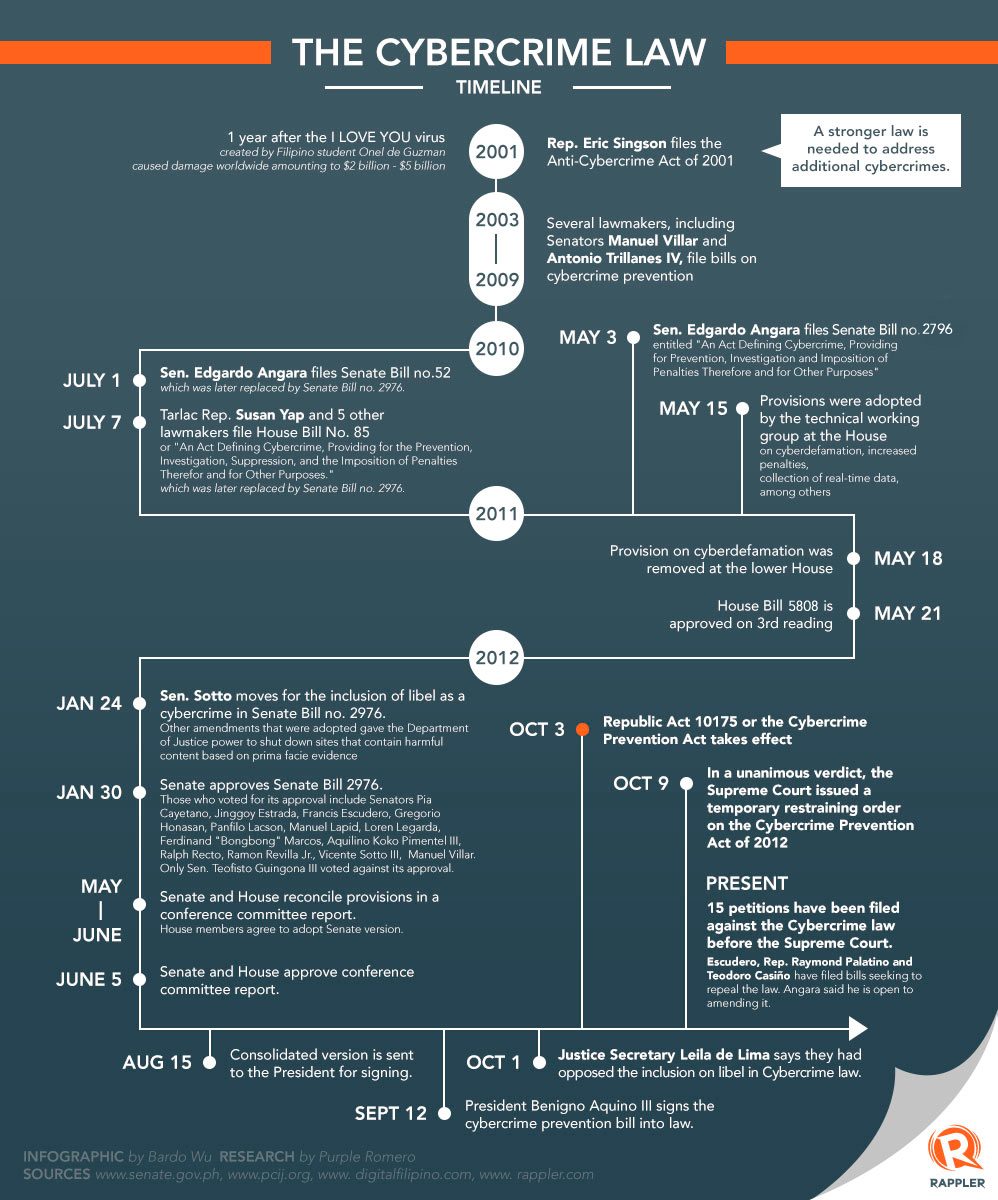SUMMARY
This is AI generated summarization, which may have errors. For context, always refer to the full article.
MANILA, Philippines – It took 11 years to pass the suspended Cybercrime Prevention Act of 2012, but it took only days to insert the law’s controversial provisions on online libel, heavier penalties for other online crimes, and the so-called “takedown” clause, which authorizes the Department of Justice to block or restrict access to websites that contain harmful content based on prima facie evidence.
In 2011, the House of Representatives killed the online libel provision – then called cyberdefamation. But the Senate resurrected it in January 2012. The libel provision was retained when the House of Representatives agreed to adopt the Senate version during the bicameral conference committee hearings in 2012.
The bill was signed into law by President Benigno Aquino III on Sept 12, 2012, and took effect on October 3.
On October 9, however, the Supreme Court stopped the government from implementing it. The Court’s temporary restraining order will be in place for 120 days, or until early next year. – Rappler.com

More on the Cybercrime law:
Add a comment
How does this make you feel?
There are no comments yet. Add your comment to start the conversation.